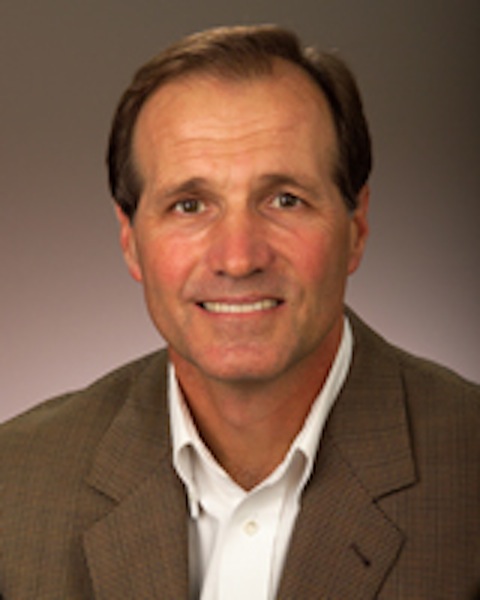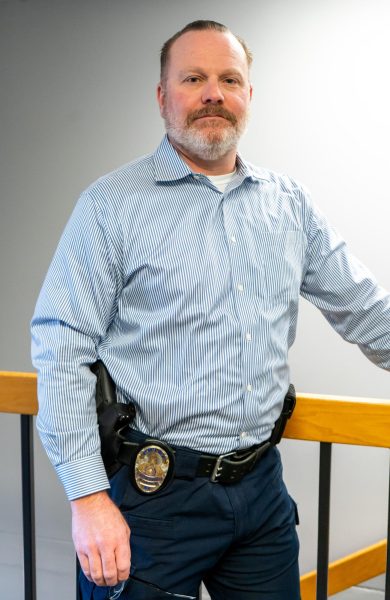UND to host eating disorders awareness week
— Professors contribute to newest edition of Diagnostic Statistical Manual of Mental Disorders

Professor Stephen Wonderlich. Photo courtesy of sanfordhealth.org.
One UND professor is seeing major results of his efforts working under the university for the betterment of his field and the international community that benefits from it.
After receiving a federally funded “Treatment Development Grant” from the National Institute of Mental Health, Dr. Stephen Wonderlich, a professor in the Department of Clinical Neuroscience at UND’s School of Medicine, is researching a new therapy option to treat binge eating disorder.
The research is being conducted out of the Fargo-based non-profit Neuropsychiatric Research Institution, directed by fellow UND professor Dr. James Mitchell, whose research interests also are in eating disorders.
“I do think it’s a good mission to not only be helping individual people, but to try to add to that scientific literature so we know what works and what doesn’t, so people get the treatment they need,” said former UND professor Dr. Jo Ellison, who is helping conduct Wonderlich’s research.
Ellison and Wonderlich share an academic interest in all eating disorders, but their current research focuses on binge eating disorder, which only became an official diagnosis when the fifth edition of the American Psychiatric Association’s Diagnostic and Statistical Manual — the text the psychological community refers to when defining mental disorders — published in May 2013. The previous edition was published 19 years prior.
The DSM-5 defines binge eating disorder as “recurring episodes of eating significantly more food in a short period of time than most people would eat under similar circumstances, with episodes marked by feelings of lack of control … and marked distress … at least once a week over three months.”
Ellison said there are therapy techniques available for treatment, but most of them are too broad and lack a focus on emotional factors.
“If cognitive behavioral therapy, which is probably the number one treatment for this condition, is largely about changing one’s perspective or thinking about the world and finding better strategies for solving problems, our treatment differs in that we’re more focused on emotional states, which seem to often drive and trigger binge eating episodes,” Wonderlich said. “We’re interested in helping people understand what kind of cues and situations cause them to have negative emotions or the absence of positive emotions — what are their triggers for these experiences, and how can they manage those triggers so they’re not put into these emotional tailspins?”
In his approved grant application, Wonderlich detailed a specific process that would take place concurrently at two sites, one in Fargo and one at the University of Minnesota in the Twin Cities.
“It’s a treatment trial, so we can’t enroll hundreds of therapists at once,” Ellison said. “We’re aiming for about 50 to 60 (patients) at each site.”
Ellison estimated it will take three years to put that many patients through the 17-week long process, but the individual treatment — which includes multiple appointments a week — should be rewarding for both the therapists and the patients.
Refining definitions
What makes Wonderlich’s research on DSM-5’s new definition of binge eating disorder especially interesting is that he actually helped write the definition.
In 2007, the American Psychological Association asked both Wonderlich and Mitchell to be a part of the DSM-5 Eating Disorder Work Group that led the revision of the DSM-IV’s descriptions of eating disorders. To have two professors from UND present on the 12-person work group — which boasted psychologists from Columbia University, Harvard University and other universities across the U.S. and Europe — is an accomplishment for UND and shows the university is a worldwide leader in eating disorder research. No other university or organization had more than one delegate on the work group.
“We had good representation from UND,” Wonderlich said. “We were working on BED for 15 to 20 years, so we were already studying bulimia, and we were already studying anorexia, and we knew there was this other problem we needed to understand more thoroughly.”
The DSM-IV classified binge eating disorder as “under need of further study.” Ellison believes research conducted since 1994 not only warranted its classification but also indicated it as the most prevalent eating disorder.
Now that the binge eating is classified as its own diagnosable disorder, stigma surrounding it should begin to vanish as more people study it.
“Now this is in the DSM, when you’re writing grants and things, you have a name for it,” Ellison said. “You’re able to say, ‘I want to do research on this.’ Other people will do research and gather data on it now because it’s a known quantity; we all know what we’re talking about.”
Ellison said the same thing happened with depression as a diagnosable disorder. Before the psychological community was more or less in agreement on what depression was, it was nearly impossible for psychologists to communicate with each other about the disorder.
“It’s a good thing we’re catching those people (with BED) and funding these treatments we can direct them to,” Ellison said. “Before, when it was an unnamed issue, you didn’t get that research or that focus.”
Awareness week
Jane Croeker with the UND Health and Wellness Hub is excited for another fun and successful week of awareness-raising events.
“It’s unfortunately rather rare that you find somebody who isn’t struggling with the way they look or their appearance or comparing themselves to others,” Croeker said. “Affirming that we come in different shapes and sizes and not trying to make yourself into something you’re not is really important.”
Starting Wednesday is the first session of the Body Project, a nationally recognized curriculum to recognize positive body image. Both men and women who wish to learn more about healthy eating habits and positive body image are welcome to join a two-session discussion series. The first series takes place Feb. 26 and March 5, and a second option is available Feb. 27 and March 6. Pre-registration is required and can be completed by emailing und.hwhub@und.edu.
Croeker said the awareness events aim to show students there is help available to them on campus.
“There are just so many options available to students,” Ellison said. “They could always go to the Counseling Center or even student health to see a doctor.”
She said the Psychological Services Center, where Ph.D. clinical psychology students train, is another option most students don’t know about.
“With any sort of psychological concern, people are very afraid of stigmatizing — worried people won’t accept them,” Ellison said. “These disorders are not rare. These things happen. It’s so much better to get help than to sit and suffer with them for long periods of time.”
Both Ellison and Wonderlich want people to know eating disorders are not a problem of vanity. Anorexia nervosa, in fact, is the most lethal psychiatric disorder in the DSM-5 — more people diagnosed with it die than people diagnosed with schizophrenia, bipolar disorder or major depressive disorder.
“Eating disorders are things that need to be understood as medical conditions,” Wonderlich said. “I don’t think a lot of people understand that.”
Will Beaton is the editor-in-chief for The Dakota Student. He can be reached at william.beaton@my.und.edu.






